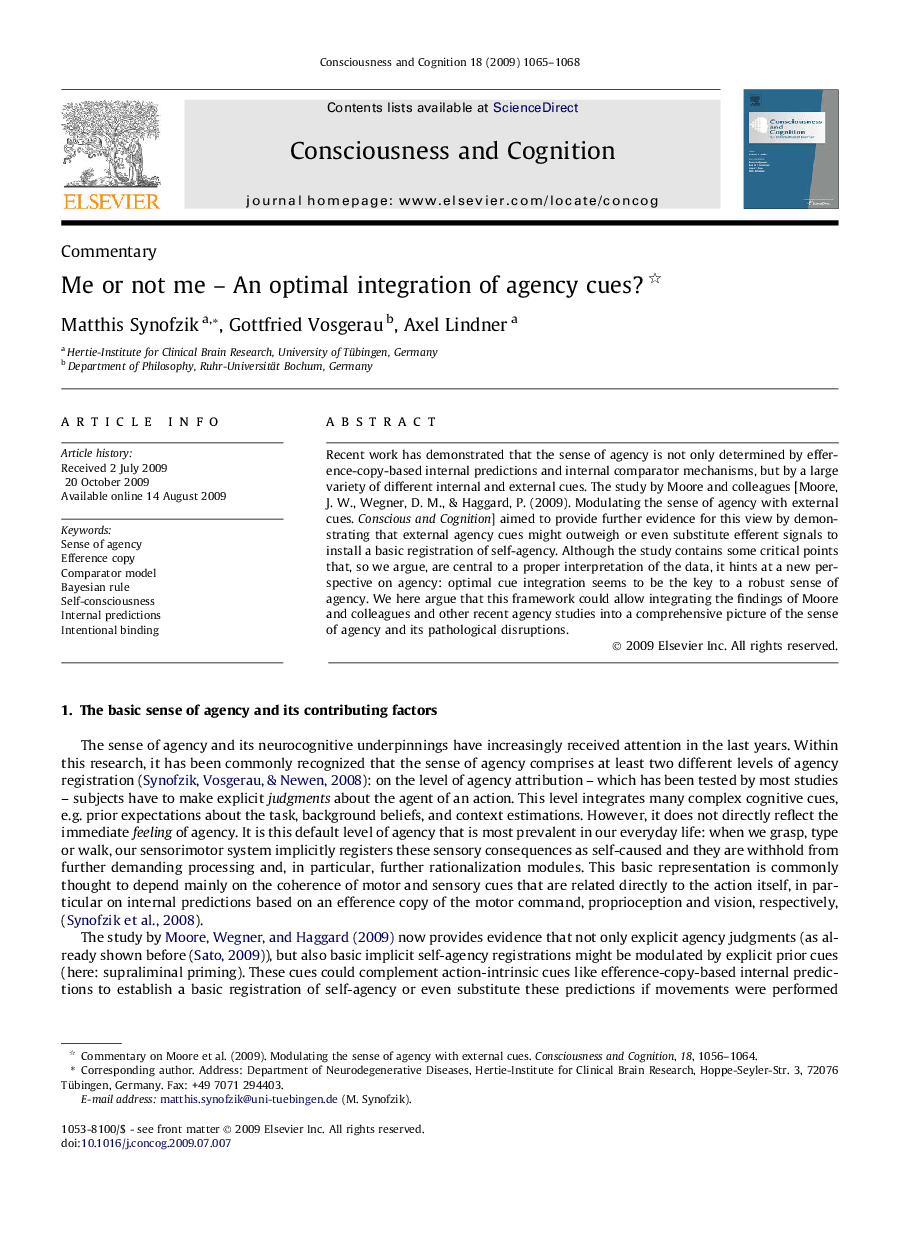| Article ID | Journal | Published Year | Pages | File Type |
|---|---|---|---|---|
| 10458751 | Consciousness and Cognition | 2009 | 4 Pages |
Abstract
Recent work has demonstrated that the sense of agency is not only determined by efference-copy-based internal predictions and internal comparator mechanisms, but by a large variety of different internal and external cues. The study by Moore and colleagues [Moore, J. W., Wegner, D. M., & Haggard, P. (2009). Modulating the sense of agency with external cues. Conscious and Cognition] aimed to provide further evidence for this view by demonstrating that external agency cues might outweigh or even substitute efferent signals to install a basic registration of self-agency. Although the study contains some critical points that, so we argue, are central to a proper interpretation of the data, it hints at a new perspective on agency: optimal cue integration seems to be the key to a robust sense of agency. We here argue that this framework could allow integrating the findings of Moore and colleagues and other recent agency studies into a comprehensive picture of the sense of agency and its pathological disruptions.
Related Topics
Life Sciences
Neuroscience
Cognitive Neuroscience
Authors
Matthis Synofzik, Gottfried Vosgerau, Axel Lindner,
